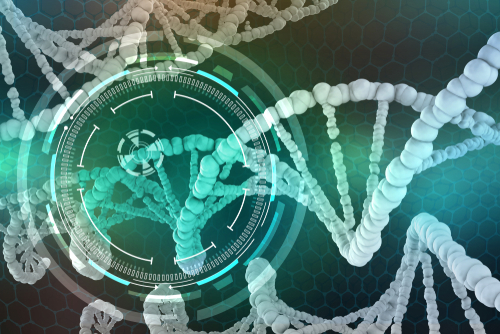Mutations to 2 Genes Linked to Cushing’s in People with Healthy USP8 Gene, Study Finds
Written by |

When Cushing’s disease is not caused by mutations in the USP8 gene — the main driver of ACTH-producing pituitary adenomas — it’s likely that mutations in USP48 or TP53 are to blame, a new study found.
The study, “Driver mutations in USP8 wild type Cushing’s disease,” was published in the journal Neuro-Oncology.
Cushing’s disease is caused by an adenoma (benign tumor) in the pituitary gland that secretes high levels of the adrenocorticotropic hormone (ACTH). Because ACTH acts on the adrenal glands and tells them to secrete cortisol, patients end up having excess cortisol in circulation — the main feature of Cushing’s.
Surgery to remove the adenoma has been the mainstay of Cushing’s treatment, but some tumors return. A lack of understanding of disease mechanisms somewhat limits the development of better treatment approaches for these patients.
Researchers discovered in 2014 that mutations in the Ubiquitin Specific Protease 8 (USP8) gene are highly prevalent in Cushing’s patients, being responsible for about 50% of cases. But what causes the disease when this gene is normal?
To find out, a group of German researchers sequenced the entire exome — the bits of DNA that code for a protein — for 18 patients whose tumors lacked USP8 mutations.
Based on the candidate mutations identified in these samples, they screened for these mutations in an additional 175 samples.
Researchers found recurrent mutations in a gene called USP48 in 10.3% of tumor samples. These were largely associated with smaller tumors, and were more frequently found in female patients.
They also found several possibly damaging mutations in the TP53 gene in six of the first 18 samples, suggesting that mutations in this gene are actually more common than originally thought. Mutations in the FAT1 and BRAF genes were seen to be extremely rare, contrasting with prior reports.
Using a computer model of the USP48 protein, researchers then examined how the mutations would affect the protein. The analysis indicated that mutations in USP48 actually changed the structural conformation of the protein and increased its activity. This change in protein shape and activity also led to an increase in the production of ACTH.
“USP48 pathogenic variants are relatively frequent in USP8 wild-type tumours,” the researchers concluded. “The ubiquitin system plays a major role in tumourigenesis with two deubiquitinases affected by mutations.”
” TP53 somatic variants are more frequent in corticotroph tumours than previously believed while BRAF mutations are quite rare events,” they added.





